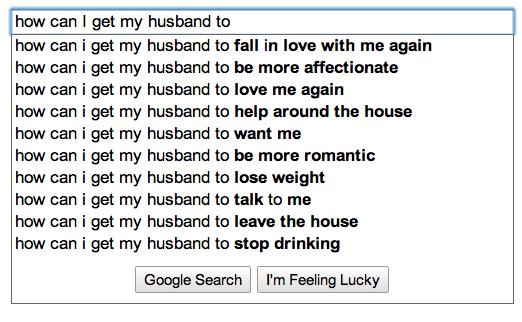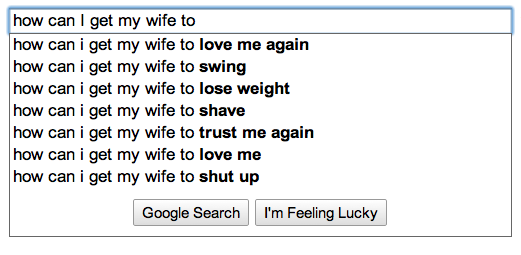Women, Men, and Math Problems.
In the experiments my colleagues and I have run on cheating, we’ve used a task in which pride about personal performance and ability has no part. The matrix test is merely a search task (wherein participants find the two numbers out of 12 that add up to 10) rather than a skill. It’s not something you’re going to brag to your friends about in all likelihood.
Recent graduate Heidi Nicklaus of Rutgers University was interested in the opposite; she wondered how people’s pride about their perceived and imputed abilities would affect their dishonesty. Specifically, she was interested in gender stereotypes. We’ve all heard the stereotype that men tend to excel at math more than women, and that women can talk and write circles around men with their superior verbal skills. So the question was, if men are more proud of their mathematic ability and women of verbal, it might cause them to cheat more.
In her experiment, Heidi first primed her participants with two comical videos that exaggerate gender stereotypes (see below). Then participants were presented with one of two sets of fake data (presented as legitimate); one supported the math versus verbal aptitude stereotypes, the other countered them. Finally, participants took brief 10-question tests measuring both math and verbal aptitude, and were told they would receive $.50 for each correct answer. Similar to the experiments my colleagues and I have run on cheating, half of participants in each condition could cheat while the other half could not.
The results showed that when people could cheat, they generally did, which is what I’ve always found in cheating experiments. On average, people claimed one extra correct answer than when cheating was not possible (an average of 4 instead of 3 correct answers out of 10 on both math and verbal tests). No news here, so what about the effect of gender stereotypes? Did having them reinforced or, alternatively, countered before taking the test have any influence on cheating?
First, the hypothesis. What Heidi expected to find was that men and women would cheat along stereotypical lines, that is, that men would cheat more on math (to show that they did, indeed, excel in mathematics) and women would cheat more on the verbal portion for the same reason. So it was intriguing when Heidi found that men cheated more on math question than expected, but men and women cheated equally on verbal questions (rather than women cheating more as anticipated).
These findings—that people did not cheat more to keep up with perceived higher achievement by others—are similar to what my colleagues and I have found. In one experiment our results showed, similarly, that people cheated by the same amount regardless of whether they thought their peers solved an average of 4 or 8 out of 20 questions in a given amount of time (reporting an average of 6 correct answers). People cheated as much as they could justify, and apparently others’ performance is not of any great concern in this justification.
Oh, and as for the stereotype that kicked off the experiment: there were no differences in performance on math or verbal questions based on gender. So hopefully this harmful stereotype will fall by the wayside sooner rather than later, since nearly all similar studies yield the same conclusion.
Men, Women, and Pain
If you’ve been to the doctor’s office recently with any kind of complaint, it’s likely you were asked to rate the pain you were experiencing on a scale from 0 to 10 (being the worst pain possible). Well, a group of researchers from the Stanford University School of Medicine recently analyzed the self-reported pain measurements from 11,000 medical records from 2007-2010 and discovered something surprising: women report greater levels of pain than men for the same injuries and ailments.
In The Upside of Irrationality, I briefly discussed a disagreement I had with a professor about the difference in pain tolerance between men and women. My professor, Ina Weiner, maintained the view that women have a higher tolerance in order to cope with childbirth, and she was unimpressed by the story I told about a woman I’d met in the burn unit who confided in me that the pain of her burns was far worse than what she experienced in childbirth. As you might expect, I decided to run a small experiment, and asked the men and women who passed by my cubicle (where I worked as a research assistant) to submerge a hand in hot water and keep it there until the pain became unbearable. Meanwhile, I timed them and recorded their gender.
The next day in class I was excited to describe my experiment and to report that the men who participated kept their hand in the hot water for much longer than the women. Professor Weiner replied that all I’d proven was that men were stupider—after all, who would subject themselves to such pain just for my silly study? Naturally this took the wind out of my sails, and I left the subject alone after that.
But as it turns out, the women analyzed in this study reported more intense pain—an average of about 20% more—for equal-opportunity afflictions ranging from neck and back pain to viral Hepatitis. While the experience of pain and the way people report it is inevitably subjective (for instance, the presence of a concerned family member might lead someone to downplay their pain), it’s likely that the large number of people included in the analysis counterbalances social and individual differences.
And while I would never say “I told you so” to a former teacher, I do hope that this research might make its way somehow to Professor Weiner.
For the original paper, click here.
What Husbands and Wives Search for on Google
A few days ago we looked at some telling search suggestions by Google when it came to what boyfriends and girlfriends searched for in their relationships. On the heels of this insight, I wanted to see what changes when we get older and get married…:

 What we find, both sides seem to care more about love, but in general the it seems that not much has changed since the days of dating for married couples. According to Google, these gender differences that we found earlier tend to persist…
What we find, both sides seem to care more about love, but in general the it seems that not much has changed since the days of dating for married couples. According to Google, these gender differences that we found earlier tend to persist…
For a very elegant tool that lets you play with such searches, see: http://hint.fm/seer/
What boyfriends and girlfriends search for on Google
You know how Google sometimes “predicts” what you might be searching for by giving you a little drop down menu of suggested search queries? These suggestions, of course, are based on what other users frequently search. So I tried teasing out some gender differences. Look at the pictures below.
This shows Google’s remarkable power as a source of data on a range of human behaviors, emotions, and opinions. It gives us insights into what people might care the most about concerning a given topic. When people search a particular political leader, what are their main concerns? What are people secretly guilty about? For better or for worse, Google’s obsession with collecting and refining data has given us a window into each other’s fascinating and telling curiosities.
 Tweet
Tweet  Like
Like 
